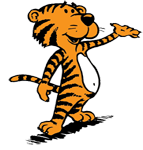4th Grade Newsletter
January 26, 2021
Language Arts
What are we learning?
- Our students will be reading nonfiction articles (researching) to gain information about a particular topic.
- Students will ask questions about their topic and find resources to answer those questions.
- They will develop their ideas and become aware of how their thinking has changed about their chosen topic.
- Students will develop new ideas and opinions based upon their reading and research.
- Students will write about their chosen topic using paragraphs to make their message clear to their readers.
- They will edit their writing to make it easier for readers to read and include proper punctuation, capitalization, and sentence structures.
- Students will showcase their work in a manner that appeals to their audience.
Home/School Connection
- What is the topic you chose for your research?
- What new information are you learning about your topic?
- What does your new learning lead you to believe about your topic?
- How has your opinion changed as a result of your research?
- How did you organize your research? How did you create headings for your sections?
- How did you introduce your reader to your topic in your introduction?
- How did you decide when you needed to start a new paragraph?
- How did you organize your thoughts in your writing so they would make sense to your reader?
- Did you make sure you edited your writing for punctuation and capitalization?
- Read a nonfiction article with your child and...
- (read the headings and ask before reading the section) What do you think this section will be about?
- (after reading section) Was your prediction correct?
- Was there any new information you learned?
- Challenge: cover the heading and read the section, then go back and ask “What would be a good heading for this section? Why?” Then, compare the heading that your child made and the actual heading!
Math
What are we learning?
We will be beginning our decimals unit! Throughout this unit we will...
- Read, write, represent, and identify decimals expressed through thousandths
- Round decimals to the nearest whole number
- Compare and order decimals
- Given a model, write the decimal and fraction equivalents
- Add and subtract with decimals
- Solve single-step and multistep practical problems involving addition and subtraction with decimals
- Recognize and demonstrate the meaning of equality in an equation
Home/School Connection
- What have you learned about decimals?
- What do you notice about the coins and their values?
- How can we use decimals in our everyday life?
- Can you represent money ($1.50, $2.50, $3.75) in multiple ways? What coins can you use? What different values can you use?
- How are fractions and decimals similar?
- Can you find the equivalent fraction of (insert fraction here)?
- How are you feeling about...
- decimal understanding?
- Comparing decimals?
- Different strategies for comparing decimals?
Science
What are we learning?
- They will be using scientific and engineering practices to develop scientific knowledge and understanding.
- We will investigate the forces between objects and see how they can cause a change in motion.
Home/School Connection
- Push an object, when will it stop? Why does it stop?
- How do scientists come up with ideas? How do they test them?
- Why do scientists' tests have to be repeated?
- What is kinetic energy? What is potential energy?
Social Studies
What are we learning?
We will be completing our Colonial Virginia Unit!
Throughout this unit...
- We will analyze the role of slavery in the growth of the colonial economy and the development in the United States
- We will uncover the dynamic, resilient, adaptive, and diverse nature of American Indian Cultures, African cultures, and European cultures
- We will evaluate the choice to relocate Virginia’s capital from Jamestown to Williamsburg
- We will explore the choices people can make when creating a system of exchange good and services
- We will form relevant questions about the lives of Africans, Native peoples, and Europeans in colonial Virginia
Home/School Connection
- How do the history and cultures of colonial Virginia influence the lives of Virginians today?
- How do people’s values shape the design of their economies?
- Why do some people leave their homes, and how do they impact their new homes?
- How do people's values shape the design of their homes?
- What influences how I act, think, celebrate, and make rules?
- What are the characteristics of culture?
Positivity Project
- Students show optimism by expecting the best from the future and working to achieve it!
- Talk about it! Ask your child to share strategies they can take from being optimistic!
- How can optimism help your brain in school?
- How have you been optimistic? How can you continue to be optimistic?
Online Learning Tip
- Learners are asked to use different materials throughout the day. By making sure that students have the materials they need nearby, it can help them stay focused and on task when a material is needed. Some of these materials may be…
- Pencil
- Paper/notebook(s)
- White board
- Marker
If you do not have any of these materials, feel free to reach out to your teacher to help set up a time that you can receive these materials to help support their learning!

